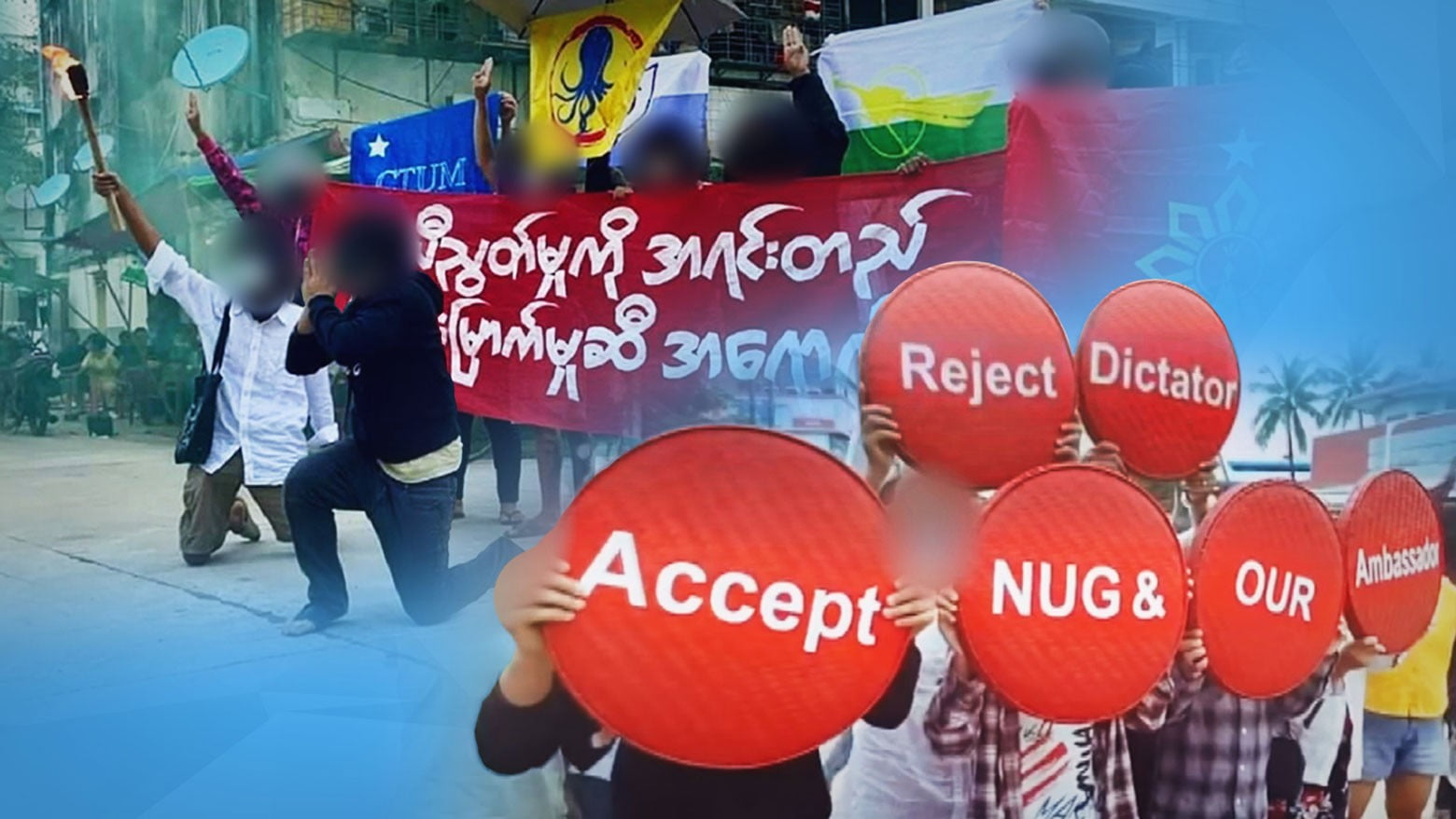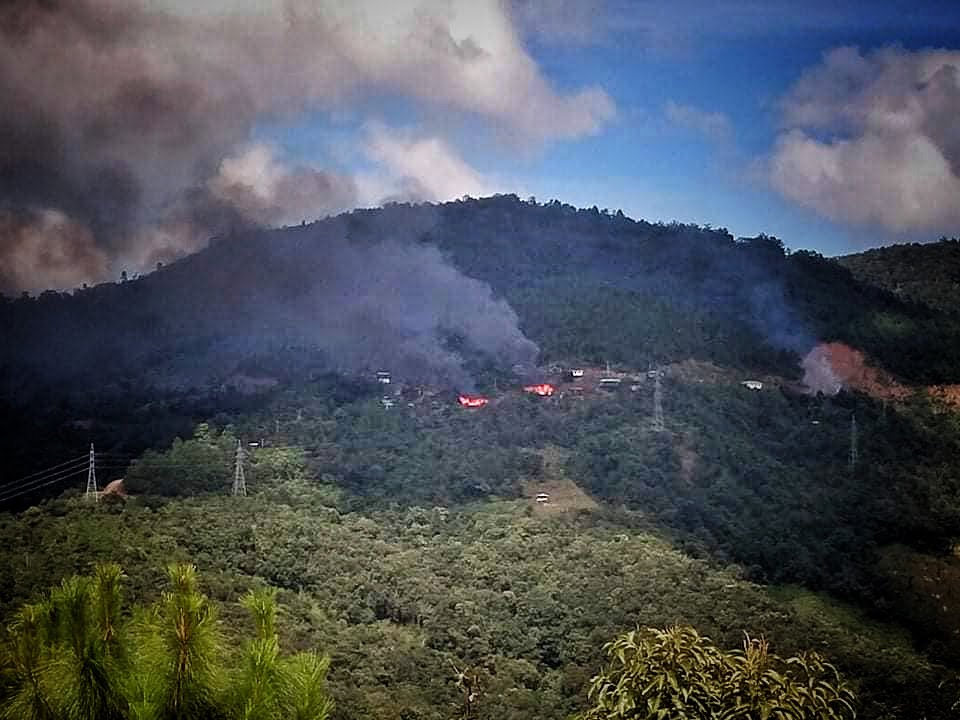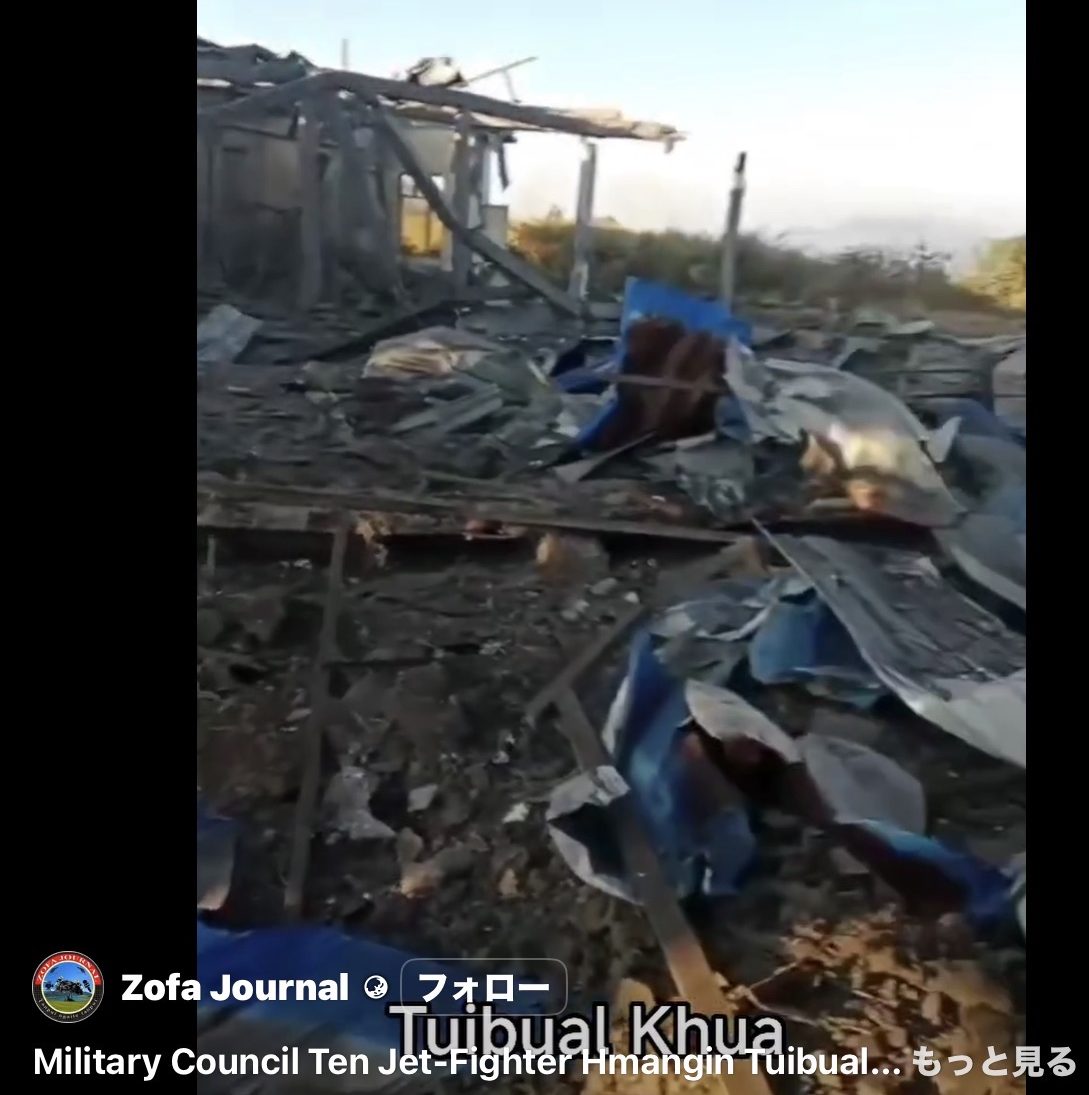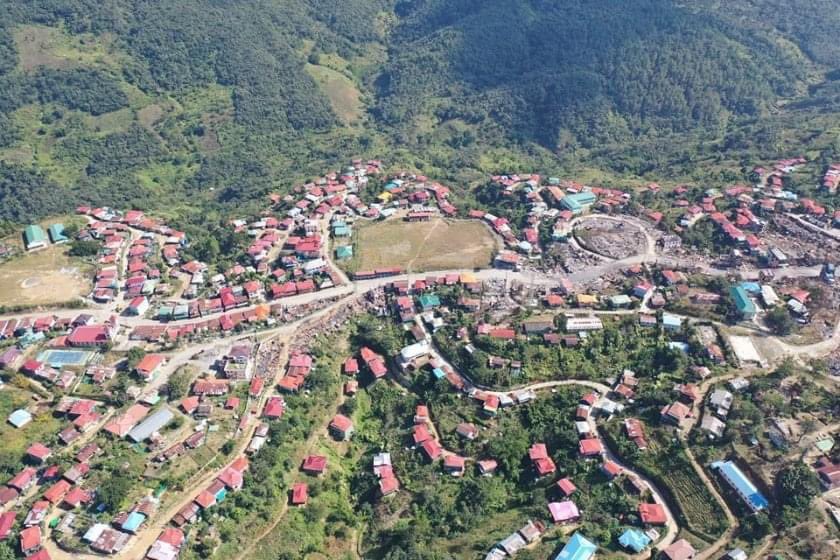Let us share a story from NHK World.
NHKワールドの記事を和訳と共に紹介します。
The military regime in Myanmar is turning to increasingly brutal tactics to suppress opposition. In July, it executed four people and started ramping up attacks on urban areas. This has spurred many young people to take up arms and fight back, while others have chosen to leave the country. But some remain committed to non-violent protest. NHK World spoke to an 18-year-old activist about the difficulties of staying true to pacifism while facing a relentless opponent.
ミャンマーの軍事政権は、反対派を弾圧するためにますます残忍な戦術に転じている。7月には4人を処刑し、都市部での攻撃を強化し始めた。これに対し武器を取って反撃する若者がいるほか、国外に出ることを選択する若者も多い。しかし、非暴力による抗議を続けている人もいる。NHKワールドは、18歳の活動家に、容赦ない敵に直面しながらも平和主義を貫くことの難しさについて話を聞いた。
2022年7月に死刑執行された4人
‘Resisting in whatever way we can’ 「なんとしても抵抗を続ける」
Breaking out into chants on buses, launching flash-mob demonstrations on the streets, unfurling banners over bridges — the young people of Yangon, Myanmar’s largest city, are seizing every chance they get to protest against the military junta. Many were in high school when the coup took place last year. But now they have abandoned their studies and are fighting to expose the regime’s cruelty to the world.
バスの中で合唱し、街頭でフラッシュモブを起こし、橋の上で横断幕を広げる–ミャンマー最大の都市ヤンゴンの若者たちは、機会があれば軍事政権に抗議の意を示している。昨年、クーデターが起こったとき、彼らの多くは高校生だった。しかし今、彼らは学業を放棄し、政権の残虐性を世界に暴露するために戦っている。
“It’s impossible for everyone to take up arms,” says the 18-year-old activist, who spoke to us on the condition of anonymity. “Each of us has a family, and we have to think about our friends and relatives. I chose to demonstrate peacefully because I am willing to resist but cannot take up arms. We are resisting in whatever way we can.”
「全員が武器を手にすることは不可能です」と、匿名を条件に話してくれた18歳の活動家は言う。「私たち一人ひとりに家族があり、友人や親戚のことも考えなければなりません。私は抵抗する意志はありますが、武器を取ることはできないので、平和的なデモを選びました。誰もが自分にできる方法で抵抗しています。」
「100の嘘に隠された1つの真実」「我々は、独裁者と戦う最後の世代にならなければならない」
Military’s brutal tactics 軍による残忍な戦術
A video was posted online on August 8 showing four protesters in central Yangon holding up four umbrellas bearing the Burmese symbol for “8.” The demonstration referred both to the number of people executed in July and the 1988 national uprising, which marked the start of Myanmar’s road to democracy. The footage was widely shared and sparked demonstrations in solidarity around the world.
8月8日、ヤンゴン中心部で4人のデモ参加者がビルマのシンボルである “8 “のついた4本の傘をさしている動画がネットに投稿された。このデモは、7月に処刑された人数と、ミャンマーの民主化への道のりの始まりとなった1988年の国民蜂起の両方を指している。この映像は広く共有され、世界中で連帯のデモを巻き起こした。
But two weeks later a pro-junta social media account announced that two of the protesters in the video had been arrested. Accompanying photos showed one of the men with marks on his body, suggesting he had been beaten.
しかし2週間後、国軍擁護派のSNSアカウントが、映像に映っていた抗議者のうち2人が逮捕されたことを発表した。添付された写真によると、1人は体に殴られた跡があった。
ヤンゴンから世界中に広がった8888抗議
In a separate incident in early September, 15 people were arrested for attempting to stage a flash-mob demonstration. The 18-year-old activist, who took part in the protest, says the military knew they were coming.
9月上旬の別の事件では、フラッシュモブ・デモを行おうとして15人が逮捕された。デモに参加した18歳の活動家は、軍は自分たちが来ることを知っていたと言う。
9月13日のデモ直前に少なくとも15人の若者が逮捕された
“When we tried to escape, the route was blocked by troops who were lying in wait,” he says. “They’d been leaked information by someone who was taking part. The military came at us from all four sides. We were surrounded.”
「逃げようとしたら、待ち構えていた軍隊が道をふさいでました。参加者の誰かが情報を漏らしていたんです。軍隊は四方から攻めてきて囲まれました。」
The activist says it is increasingly difficult to even plan demonstrations because undercover military officers are everywhere, especially places where young people are known to gather.
この活動家によると、覆面軍人がいたるところにいて、特に若者が集まることで知られる場所には、デモを計画することすら難しくなっているとか。
“They’re always in the coffee shops, and if they’re wearing civilian clothes we can’t spot them,” he says.
「あちこちの喫茶店にいるが、私服を着ていると見分けがつかない」と彼は言う。
Spying and arrests aren’t the only methods the military is using to try to silence the protest movement. It recently announced plans to develop its own social media platform as part of an effort to cut the country’s internet off from the rest of the world.
軍が抗議運動を封じ込めようとする方法は、スパイ行為や逮捕だけではない。軍は最近、国内のインターネットを世界から遮断する努力の一環として、独自のソーシャルメディア・プラットフォームを開発する計画を発表した。
軍は「MTube」と名付けた新しいプラットフォームを開発し、批評家によるFacebook投稿の共有や「いいね!」を禁止
Struggling economy impacts protest movement 低迷する経済が抗議運動に影響
The protesters also face a difficult economic situation. According to research by Professor Steve Hanke at Johns Hopkins University, the country’s real inflation rate likely exceeds 100 percent.
デモ参加者たちは、厳しい経済状況にも直面している。ジョンズ・ホプキンス大学のスティーブ・ハンケ教授の研究によると、同国の実質インフレ率は100%を超えている可能性が高いという。
ミャンマーのインフレ率は9月15日現在で103%という厳しい状況
Suicide rates are on the rise and young people are looking for ways to leave the country. A recent video showed hundreds of people lined up to apply the Japanese-Language Proficiency Test so they could qualify for jobs abroad.
自殺者は増加傾向にあり、若者は国外に脱出する方法を探している。最近の映像では、海外就職のために日本語能力試験の受験を希望する数百人の人々が列をなしている様子が映し出されている。
日本語能力試験の申し込みに並ぶ若者たち
The protesters who remain in Myanmar have gone underground and are constantly on the move to stay ahead of the military. They collect rainwater to drink and eat proper meals only once every three days, if they are lucky. Despite the conditions, they remain committed to the cause of a democratic Myanmar.
ミャンマーに残っている抗議活動家は地下に潜り、軍に見つからないよう常に移動している。飲み水は雨水を集め、まともな食事は運が良ければ3日に1回程度。そんな状況にもかかわらず、彼らはミャンマーの民主化という大義名分を掲げ活動を続けている。
“It’s really hard,” says the 18-year-old activist. “There are times when I want to die. No one can even see their parents. Increasing numbers of young men, women and children have gone missing. The violence against women is the worst. There are no human rights here.”
18歳の活動家は「本当につらい」と言う。「死にたいと思うこともある。親に会うこともできない。若い男性や女性、子どもたちがどんどん行方不明になっています。女性に対する暴力は最悪です。ここには人権がないのです。」
雨水を集めて飲み、食事は散発的にしかとれない若者がいる
Crisis gets bloodier 危機はさらに血で染まる
On September 16, airstrikes on a school in northwestern Myanmar killed at least 12 people, including children. Protesters in Yangon immediately posted the dying words of one of the victims: “Mom, please kill me, it’s too painful to bear.”
9月16日、ミャンマー北西部の学校への空爆により、子どもを含む少なくとも12人が死亡した。ヤンゴンの抗議者たちは、すぐに犠牲者の一人の死に際の言葉を掲載した。「お母さん、殺して。痛くて耐えられない」
「お母さん、殺して。痛くて耐えられない」
Reports of such violence are becoming commonplace in Myanmar. But the 18-year-old activist is certain he made the right decision to join the protest movement: “I never imagined I would be in such an awful situation at a time when I am supposed to be studying in high school. But I have no regrets because this is the path I chose.”
ミャンマーでは、このような暴力の報道が日常的になっている。しかし、18歳の活動家は、抗議運動に参加した自分の判断が正しかったと確信している。「高校で勉強するはずの時期に、こんなひどい状況になるとは思ってもいませんでした。でも、これが自分で選んだ道なので、後悔はしていません。」




